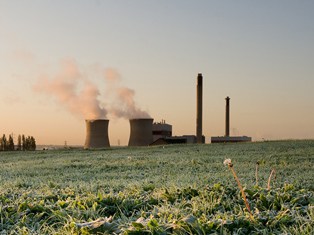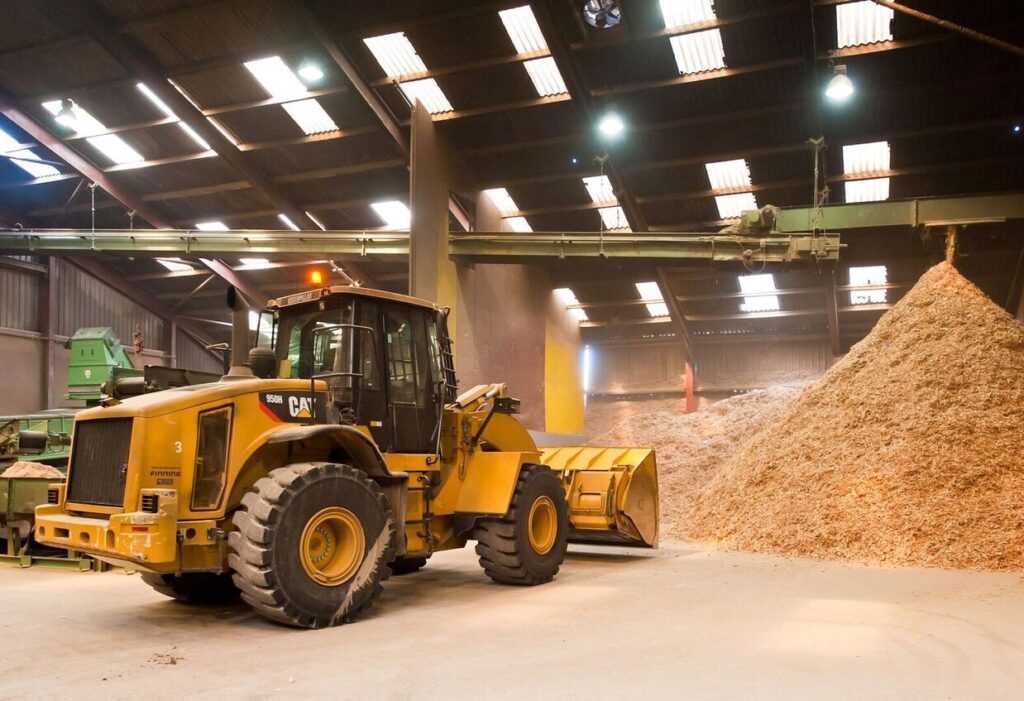But, while the plant may not continue to use waste wood, it is set to offer an important UK market for refuse derived fuel.
Scottish and Southern Energy’s (SSE) combined heat and power plant (CHP) at Slough currently burns in excess of 150,000 tonnes of waste wood producing around 80 Megawatts of electricity per year.

But, last month SSE announced that it is beginning work to upgrade the plant, and has yet to confirm if it will continue to burn waste wood in the future. Meanwhile, the plant is set to run at a reduced capacity while the upgrade work takes place and around 40 jobs are set to be lost at the site over the next six months.
Eventually, the aim is to use 300,000 tonnes of “waste-derived fuel” according to SSE.
In a statement, the company said: “Two units at Slough use ageing fluidised-bed biomass technology, which are becoming increasingly uneconomic. SSE will therefore decommission both these units, and associated infrastructure, on a phased basis over the next six months. Both units will cease generation completely by October 2013.”
Slough’s remaining boiler and steam turbines will continue to operate as normal and SSE will invest approximately £8m to increase the output and efficiency of this unit and broaden its fuel envelope. The station will provide 20MW of capacity after this upgrade.
Wood chips
The CHP plant is one of the UK’s largest dedicated biomass energy facility and its main sources of fuel are wood chips, biomass and waste paper, although gas, gas oil and heavy fuel oil can also be used.
SSE is set to continue to burn waste wood at a reduced capacity of around 70,000 tonnes over the next 12 months. However, SSE has declined to confirm whether it will continue to burn waste wood at the site once the upgrade has been completed.
Wood recyclers say that the move could drive the market for material further north which will result in rising gate fees for operators in the South East to cover the increase in transport costs as material will have to travel further.
David Lee, group operations director at Hadfields Wood Recyclers, which operates a wood recycling site in Essex, as well as in Manchester and on Teesside, commented that the withdrawal of SSE from the South East is likely to make the market more competitive in the region.
He said: “We’ve had a good winter and we don’t have too much material around, which means that the short term effect wont be too bad, but it is not clear what they are going to be doing after the refit has been done.
“Some people are genuinely concerned. With new plants coming into the market, the level of demand will be roughly the same as it was in 2009, but that demand is moving geographically further north. When it is further away it is the last material of choice and the South East will become a much tighter market.”
One supplier to the Slough plant added: “This development will slow everything down. The board mills are already running slow because there is reduced demand for board and we have to be careful not to stockpile too much wood as the Environment Agency don’t like it.”
New facilities
But, Kevin Sibley, commercial manager of wood recycler Countrystyle, commented that he did not think that the reduction in demand from the Slough plant would be catastrophic for the wood market, and said that new facilities coming on line such as RWE’s facility in Markinch, Fife, would mitigate the loss in capacity.
He said: “It is sad to see any wood burning plant going out of action, even temporarily, but I dont think it is going to be a massive catastrophe and it comes as the Scandinavian market has been buying more, due to a long cold winter.
“The RWE plant is also coming online, as well as a facility in the Netherlands that will lessen the impact. At the moment demand is sufficient to absorb most of the material that is not being taken at Slough, but we may not begin to notice the difference in the summer. We are still exporting a lot of material to Sweden where there has been a long cold winter and I think that will continue for a few months.”
The RWE facility is set to be the largest wood-waste burning biomass plant in the UK. The plant is currently undergoing commissioning and is expected to be fully operational this year (see letsrecycle.com story).






Subscribe for free